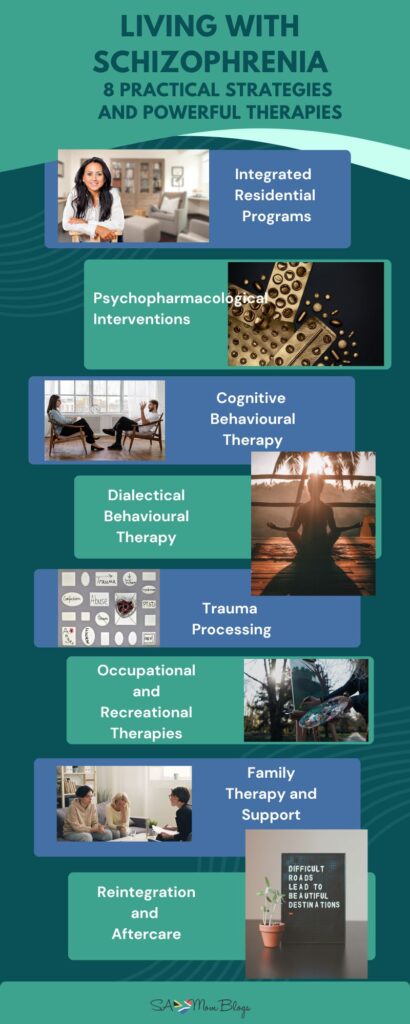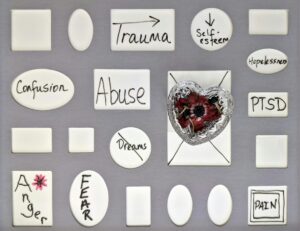This guest post was written by Papillon.
Schizophrenia, a complex and multifaceted psychiatric disorder, necessitates a multi-dimensional approach for effective management and recovery. Contemporary treatments have adopted a unique and integrative strategy to address the diverse challenges faced by individuals with schizophrenia.

Integrated Residential Programs
Recovery centres today provide comprehensive residential programs that are meticulously designed to address the individualized needs of residents. The foundation of these programs is a structured daily routine that combines evidence-based schizophrenia therapy, holistic interventions, and community living.
This integrative approach not only addresses the symptoms of schizophrenia but also promotes overall well-being and personal growth.
Psychopharmacological Interventions

A cornerstone of schizophrenia treatment is the use of antipsychotic medications. These medications help manage the positive symptoms of schizophrenia, such as hallucinations and delusions.
Medication management is closely monitored by a team of experienced psychiatrists who tailor treatment plans to each resident’s unique needs. Regular assessments and adjustments provide optimal therapeutic outcomes while minimizing side effects.
Cognitive Behavioural Therapy (CBT)

CBT is a well-established psychotherapeutic approach that is highly effective in managing schizophrenia. It helps residents develop coping strategies to deal with distorted thinking patterns and negative behaviours.
CBT sessions are conducted by skilled therapists who work collaboratively with residents to develop their cognitive and emotional resilience. This schizophrenia therapy is instrumental in reducing the severity of symptoms and preventing relapse.
Dialectical Behavioural Therapy (DBT)

DBT, initially developed for borderline personality disorder, has shown promising results in treating schizophrenia, particularly in managing emotional dysregulation and impulsivity.
Such DBT programs focus on teaching residents’ mindfulness, distress tolerance, emotion regulation, and interpersonal effectiveness skills. These skills are essential for maintaining stability and improving relationships, both within the therapeutic community and in broader social contexts.
Trauma Processing

Many individuals with schizophrenia have a history of trauma, which can exacerbate their symptoms. Trauma processing therapies, such as Eye Movement Desensitization and Reprocessing (EMDR) and Trauma-Focused CBT, are integral to an effective treatment regimen.
These therapies aim to resolve traumatic memories and reduce their impact on current functioning. By addressing underlying trauma, residents can achieve greater psychological stability and symptom relief.
Occupational and Recreational Therapies

Reintegration into society is a critical goal for those living with schizophrenia. Occupational therapy helps residents develop practical skills for independent living and employment. This includes vocational training, time management, and problem-solving skills.
Recreational schizophrenia therapy, such as art, music, and sports, provide residents with creative outlets and promote physical health. These activities help to improve social interaction and the overall quality of life.
Family Therapy and Support

Schizophrenia profoundly affects not only the individual but also their family. As such, effective treatment emphasizes the importance of family involvement in the recovery process. Family therapy sessions provide a platform for open communication, education about the disorder, and strategies for supporting the resident.
This collaborative approach strengthens the family unit and fosters a supportive and kind home environment, which is needed for sustained recovery.
Reintegration and Aftercare
Successful reintegration into society is the goal of successful treatment programs. This involves gradual exposure to real-world challenges, supported by an effective aftercare plan.
Those completing treatment are provided with continued access to therapeutic support, community resources, and peer support groups. This means that they have the necessary tools and networks to maintain their progress.

Conclusion
These strategies represent a progressive and holistic approach to managing schizophrenia. This comprehensive model not only alleviates symptoms but also promotes long-term recovery and societal reintegration, setting a benchmark for schizophrenia treatment worldwide.





Leave a Reply